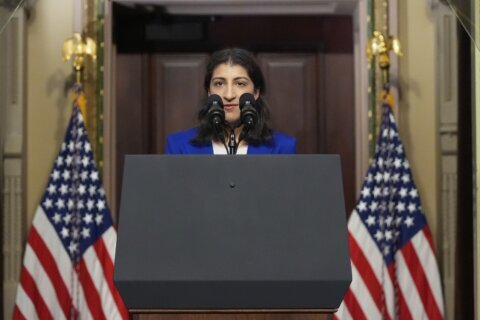Working full-time with two kids under age 3, Da Chang sought an MBA program that was local, flexible and worked with his busy schedule. He chose to apply to only one school — Warrington College of Business at the University of Florida. He says he knew doing so was a risky move, but he felt confident that he was a strong applicant.
“I knew that UF MBA was the top school I wanted to attend, and if I didn’t get in, the admissions cycle turnover was quick enough that I would have been able to still apply to other programs,” says Chang.
As it turned out, he was accepted, and graduated from the program in 2019.
Chang is not alone in applying to only one MBA program, but prospective students should think carefully before choosing this path.
“I always encourage applicants to research and consider multiple MBA programs, but after appropriate research there are times when applying to one MBA program could be the right choice,” says Kelly Farmer, assistant dean for admissions at Johns Hopkins Carey Business School.
[READ: Writing a Strong MBA Resume: A Guide for Applicants.]
While MBA candidates typically apply to multiple schools, there are some solid reasons to consider applying to only one. These include:
— Rolling admissions.
— Location.
— Company sponsorship.
— Highly specific career goals.
— Focusing on your dream school.
Rolling Admissions
Rolling admissions means a school considers applications as they are submitted (usually within a certain time frame), rather than after a specific deadline. Warrington and Columbia University Business School are among the MBA programs that offer rolling admissions.
The opportunity to get a quick decision was one of the reasons Laury Fang chose to only apply to Columbia Business School, which he says notifies applicants of their decision within six weeks.
“I actually got admitted around three weeks after I submitted my application,” says Fang, who works at global consulting firm Charles River Associates in Chicago and will be attending in August 2023. “Columbia’s application opens in early July and if applicants submit on time they can still have plenty of time to prepare for the round one deadline for other schools if they don’t get in.”
Many MBA programs have three rounds of admissions with different application deadlines. Candidates planning to apply to only one program at a time should be sure to check deadlines carefully and make sure they have a Plan B if their first application is rejected.
Location
Location can matter when it comes to everything from climate preferences to proximity to industry and city life.
“Location was definitely an important factor for me. Having been living in Chicago for the past several years, I wanted to have an opportunity to experience the culture of other cities,” says Fang.
Fang says he made sure to speak to a few current Columbia students as well and through them learned that New York City had various professional opportunities, particularly in technology, which he wanted to pivot to after his MBA.
While current students can be good contacts, experts advise also reaching out to a school’s admissions team, who can further answer any location-specific questions and offer guidance.
“I can tell you UF MBA’s admissions staff is excited to speak to every prospective student and applicant to ensure that the application to our school alone was the best academic and professional decision” for the candidate, says Naz Erenguc, the program’s director of admissions.
Company Sponsorship
Some applicants may be fortunate enough to have the company they work for pay for their MBA, and sometimes that benefit extends only to a specific program.
For example, Cigna has a partnership with the University of Hartford Barney School of Business that covers the cost of tuition and fees for eligible Cigna employees enrolling in the customized accelerated online MBA program. Participants must meet requirements like maintaining at least a B-minus average and completing a capstone project related to a Cigna business challenge.
United Airlines has a partnership with DePaul University‘s onsite MBA program. United employee applicants do not have to take the GMAT, do not submit any letters of recommendation or personal essays and get their application fee waived. Employees receive a 25% tuition discount and those who already hold undergraduate business degrees may be eligible to waive certain courses.
Chang says that while company he worked for at the time did not have a formal education reimbursement policy, he was able to negotiate for his employer to pay for his MBA.
“My employer saw the value of the UF MBA for me and their organization and agreed to help reimburse the cost of the program in exchange for a post-graduation commitment as long as I maintained a 3.33 GPA,” says Chang.
[Read: Reach Business Schools: What to Know, How to Get In.]
Highly Specific Career Goals
For candidates with a very specific career path — such as technology or health — one particular program may be the best fit for their career objectives. Certain MBA programs such as the Haas School of Business at the University of California, Berkeley and Harvard University Business School are known to have their students recruited by highly desirable companies like Apple or Google.
Spriha Modi says her decision to only apply to the Johns Hopkins Carey Business School was primarily driven by her focus on the health-care industry and the opportunity to expand her network in that space as she transitioned careers.
Modi, who graduated in May 2022, says that although several business schools offered a health-care specialization, the health, technology and innovation MBA track at Carey benefitted from being part of the broader health-care ecosystem at Hopkins, which includes a renowned medical school, research hospital and health-care system.
“The focus on the business of health is taken to a completely different level, which fit well with my professional goals,” says Modi.
Focusing on Your Dream School
Some candidates want to attend their dream school and nowhere else.
Susan Cera, MBA admissions consultant at Stratus Admissions Counseling, says in many cases students who are rejected from their dream school will reapply one or two more times rather than trying for other schools. She advises students doing so to think about their ideal timeline.
“If you are comfortable staying in the role you are in and feel that you would continue to learn and grow if you stay another year then go ahead and apply only to your dream program. But be sure that you will be a stronger applicant before you reapply,” says Cera.
While focusing on your ideal school is OK, Cera advises candidates to explore other programs so they don’t discover later on that a different program may have been an even better fit for their needs and goals.
For Chang, who now serves as chief operating officer for BluePearl Pet Hospital, a network of specialty and emergency veterinary hospitals, applying to one MBA program worked out well.
“I evaluated the options and UF was by far the best choice for me,” says Chang.
More from U.S. News
2 MBA Admissions Essays That Worked
7 Questions to Ask on a Business School Campus Tour
How Much Work Experience Do I Need for MBA Programs?
Know When to Apply to Only One Business School originally appeared on usnews.com







